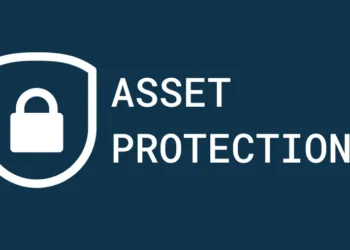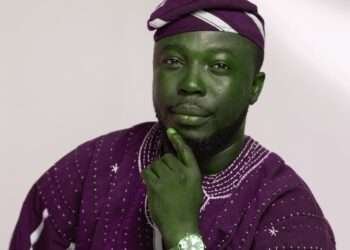The father of economics, Adam Smith stated that “human needs are insatiable.” This, I believe is not only in economics but in general. Human beings are never satisfied with what they have or better still want something, get it and start looking for something else to chase.
The infiltration of the coronavirus in Ghana has confirmed this saying that, I got to know in my secondary school days. We would recall that after about a few confirmed cases, Ghanaians called for a lockdown which led to implementation of the Restriction Bill. The bill warrants the first gentleman of the land, Nana Addo Danquah Akuffo-Addo to restrict the movement of every Ghanaian. As he is the man of the people and does the will of the people, he implemented a two-week lockdown in Greater Accra and Greater Kumasi – the major places with surging cases. After the two-week lockdown, he extended the lockdown by one week.
The extension saw a lot of complaints from Ghanaians especially those involved in the informal sector. Three weeks into the lockdown, people started calling on government to lift the ban on restriction because they relied on daily income.
So, on April 19, 2020, the President lifted the restriction on movement. This move saw jubilations by some Ghanaians because they now had the license to go about their hustle. This same move also faced reproach by some people.
President Akuffo-Addo explained that the decision to lift the partial lockdown was taken after careful consideration of several factors. According to him the country’s current capacity “to trace victims of this disease, being able to test, being able to isolate and quarantine those people so that we take them out of the population, and, of course, the treatment”, are some of the factors that led to the decision to lift the partial lockdown.
This saw some economists and the Trade Union Congress (TUC) commending him for this move. Dr. Michael Owusu, a Virologist at the Department of Medical Diagnostics at KNUST and a Researcher at KCCR, also lauded the government.
According to him, the lockdown is only effective in this battle when it lasts between three to six months and he asked for how long Ghana could survive a lockdown. He suggested that Ghana is better off looking at “the flexible and tightening approach” in handling the situation. Dr. Owusu said government should “locate where the hotspots are, put in intervention and then withdraw and then you relax.”
However, science disagrees with this decision of the president. On 21st April 2020, Presidential Advisor on Health Dr. Anthony Nsiah Asare, projected fifteen thousand (15,000) deaths from coronavirus. This projection assumes 10% of the Ghanaian population is likely to test positive for the virus before infections peak. He revealed in an interview that out of the 10% projected infections, majority of the cases are likely to be asymptomatic.
“We expect that about 10% of the population may be infected and out of the 10% of the population 80% may not show signs or symptoms at all and 5% of them will be very ill, that is the projection,” he said.
It is however important to note that according to these projections, if Ghana’s estimated population is 30 million, then around 3 million Ghanaians are likely to test positive for the COVID-19 when infections peak.
As scary as this looks, I know people will be wondering why the President gave in to the pleas of Ghanaians. Notwithstanding, we would recall that the President emphasized that the virus stops moving when people stay home and he urged everyone to stay home unless for dire reasons. This in simple language means, ‘yes I have lifted the ban but limit your movements because your life is in your hands’.
Some will ask “Mr. President, don’t you know Ghanaians? Even when we were restricted, we did not adhere to social distancing. Is it now that you have given us the freedom to move about?”
Some also believe that the lifting of the partial lockdown reiterated the trending memes on social media platforms that “by June we will all be dead”. Please search “Dada Awu” meaning “Father is dead” on any social media platform or better still google it. In as much as the current situation is not funny, people have found solace in the memes to reduce the thought of how grave the pandemic is.
One of the people who vehemently expressed disappointment over President Nana Akufo-Addo’s decision to lift the lockdown is Professor Agyeman Badu Akosa, a former Director-General of the Ghana Health Service. According to him, the inadequate testing centres and upsurge in COVID-19 cases in the country defeat government’s decision to lift the lockdown.
While speaking on the matter in an interview, Prof. Akosa said,
“looking at the science of this whole distribution of COVID-19, one will realize that it has moved from the centre, Accra, towards the periphery…Even with our cases, there was still a lot of backlog in testing which we felt was not good enough [to warrant the lifting of the lockdown]. We needed a situation where more centres could have come online.”
Meanwhile, some people like Complex Emergencies expert, Mr. Casely Ato Coleman have tried to see through the lens of the President and believe the President did it based on the weighty factor on the scale. However, he says government has left Ghanaians in the dark about the whole response plan to tackling this novel coronavirus.
He said, “now from the risk management perspective, the first gap I see is that we have not seen the government of Ghana’s COVID-19 response plan in white and black. The first gap for me is that the government has to produce it’s response plan with all relevant insight then we can analyse the trajectory of the management of the response.”
This caused government to come out to explain that the numbers presented to Ghanaians may be altered. This led to Dr. Nsiah-Asare’s projection that about 5% of the projected 3million infections implies that about 150,000 people will likely be seriously sick. 10% out of the 150,000 people will likely be fatal, which means around 1,500 deaths might be recorded in Ghana.
However, Dr. Nsiah-Asare said this model may not apply strictly to Ghana’s situation.
“If you look at the cases that we are seeing, the cases that are getting critical are very, very small…it means, we have a situation where this hypothesis may be the case in Ghana,” he explained.
Now it is up to you to judge which factor weighed more on the scale of decision of government, Science or Economy?
Did we run away from death (hunger) to meet death on the other side (coronavirus)?





















